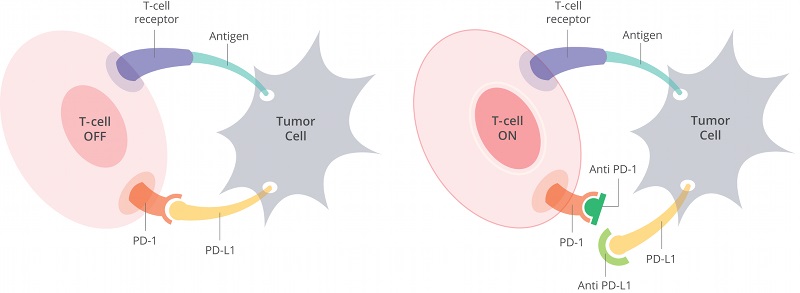
Dr. Waseem Abbas
Cancer Treatment Specialist
Director Research, Max Hospital, Shalimar Bagh
How to contact me
Max Superciality Hospital, FC 50, C and D Block, Shalimar Place Site, Shalimar Bagh, New Delhi, Delhi 110088
Phone: +91 98112 42729
Email: drabbasdoc@gmail.com
Search this website
Common Cancers in India
Get a free E-consultation about lung cancer immunotherapy in Delhi
Immunotherapy treatment for head and neck cancer-
Patient Information
Patient education and Resources about Immunotherapy

Head and neck cancer is a collective term that includes several different types of cancers that includes several different types of tumors –Oral cavity, throat, voice box, salivary glands, sinuses.
Most common histology is squamous cell histology
Head and neck cancer is most commonly seen in smokers and other most common cause is HPV Infection especially in early years of life.
30 to 50% of patients will eventually relapse depending on stage. Once disease relapses very few options are available except chemotherapy and targeted therapy – Cetuximab.
Immunotherapy is offering hope for such patients to survive longer. It does not cure stage 4 head and neck cancers but controls disease for some time.
Some patients survive for longer periods. We need to look at prognostic and predictive biomarkers for response. Immunotherapy does not work for every patient.
Immunotehrapy lnk of our re4search which I will give.
Is immunotherapy recommended for initial diagnosis or better suited for those patients with reoccurrence?
Immunotherapy at present has a role in recurrence when cancer is not amneble to local therapy like surgery or radiation.
Immunotherapy is also given to patients who are upfront metastatic i.e., present with metastatic disease.
Now we can give immunotherapy upfront to such patients who present with metastatic head and neck cancer .We never would have thought we will be able to offer chemotherapy free treatment. It is really a great new and we will be seeing more and more patients surviving without chemotherapy.
How long are patients treated with immunotherapy? Does the length of time vary based upon the effectiveness?
Once Immunotherapy has been started we need to look at the response to drug. Has tumor started shrinking? Usually it is done after 2 months, by clinical examination and CT Scans .If patient is responding immunotherapy is continued for 3 months more and again scans are done to see the response. In case of metastatic head and neck cancer immunotherapy is continud till disease is under control.
If immunotherapy does not work, can a patient return to chemotherapy treatments?

Yes if immunotherapy does not work or stops working in head and neck cancer we need to stop immunotherapy and chemotherapy can be started. Preliminary studies have shown chemotherapy works better after immunotherapy in lung cancer and this data can be extrapolated to head and neck cancer although data is under review.
After scans indicate no evidence of disease, how long is it advised to continue immunotherapy treatments?
Usually immunotherapy in metastatic head and cancer in continued till progression of disease, but can be stopped after achieving a response if toxity or any other constrains.
What Are the rugs used?
Pembrolizumab-Ketruda.
Nivolumab-opdyta.
Head and neck cancer specialists usually form multidisciplinary care for each patient, and an evaluation should be done by each doctor before any treatment begins. This team often includes these specialists:
- Medical oncologist: A doctor who treats cancer using medications, such as chemotherapy, immunotherapy, and targeted therapy.
- Radiation oncologist: A doctor who specializes in treating cancer using radiation therapy.
- Surgical oncologist: A doctor who treats cancer using an operation.
- Reconstructive/plastic surgeon: A doctor who specializes in reconstructive surgery, which is done to help repair damage caused by cancer treatment.
- Maxillofacial prosthodontist: A specialist who performs restorative surgery in the head and neck areas.
- Otolaryngologist: A doctor who specializes in the ear, nose, and throat.
- Oncologic dentist or oral oncologist: Dentists experienced in caring for people with head and neck cancer.
- Oncology nurse: A nurse who specializes in caring for people with cancer.
- Physical therapist: A health care professional who helps patients improve their physical strength and ability to move.
- Speech-language pathologist (SLP): This health care professional specializes in communication and swallowing disorders. An SLP helps patients regain their speaking, swallowing, and oral motor skills after cancer treatment that affects the head, mouth, and neck.
- Audiologist: A medical professional who treats and manages hearing problems.
- Psychologist/psychiatrist: These mental health professionals address the emotional, psychological, and behavioral needs of the person with cancer and the patient’s family.
- Social worker: This health care professional provides counseling for patients, family members, and support groups. A social worker may also arrange family meetings, help with practical issues like transportation, and connect patients with local resources.
- Registered dietitian nutritionist: A nutrition professional who helps people understand the best ways to eat and what to eat for their specific conditions and recovery, to ensure they get the proper nutrition.
Research
- https://www.cureus.com/articles/17222-harnessing-the-immunomodulatory-effects-of-radiation-in-urinary-bladder-cancer#:~:text=Extensive%20preclinical%20data%20supports%20the,the%20systemic%20anti%2Dtumor%20effect.
- https://www.ojionline.org/article.asp?issn=2589-1871;year=2020;volume=4;issue=3;spage=110;epage=114;aulast=Patil
- https://ijmio.com/cardiotoxicity-in-patients-on-trastuzumab-in-her2-positive-breast-cancer-a-retrospective-analysis-from-a-center-in-north-india/
- https://www.crstonline.com/article.asp?issn=2590-3233;year=2020;volume=3;issue=1;spage=146;epage=147;aulast=Abbas
- https://www.researchgate.net/publication/343512692_Predictors_of_Occult_Neck_Metastasis_and_Extra_Capsular_Spread_in_Early_Oral_Cancers
- https://pubmed.ncbi.nlm.nih.gov/30050778/
- https://pubmed.ncbi.nlm.nih.gov/31607695/
- https://pubmed.ncbi.nlm.nih.gov/31807489/
- https://www.proquest.com/openview/d26bb79fb4948a5db6724295f88156a5/1.pdf?pq-origsite=gscholar&cbl=226512
- https://pubmed.ncbi.nlm.nih.gov/31489291/
- https://www.ncbi.nlm.nih.gov/pmc/articles/PMC6498714/
- https://www.journalofcurrentoncology.org/article.asp?issn=2589-8892;year=2018;volume=1;issue=2;spage=97;epage=100;aulast=Patil
- https://www.ncbi.nlm.nih.gov/pmc/articles/PMC6348784/
- https://www.researchgate.net/publication/334632035_Cancer_Awareness_amongst_Nurses_in_a_Tertiary_Care_Hospital_in_North_Delhi_India
- https://www.crstonline.com/article.asp?issn=2590-3233;year=2021;volume=4;issue=1;spage=55;epage=60;aulast=Abbas
- https://www.crstonline.com/article.asp?issn=2590-3233;year=2020;volume=3;issue=1;spage=146;epage=147;aulast=Abbas
